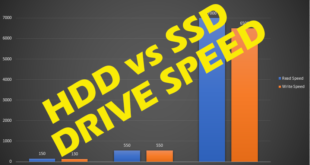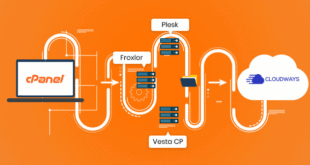 Shared hosting plans are often vilified as the black sheep of the web hosting industry, with hundreds of articles online stating how unreliable and inconsistent a shared web server can be. However, as server maintenance and task allocation technology continues to advance, the performance of shared web servers improves year after year. Although dedicated and VPS (virtual private server) hosting plans are certainly more powerful and versatile than shared plans, shared hosting will suffice for the majority of webmasters. Consider the following five reasons why shared hosting is actually not that bad:
Shared hosting plans are often vilified as the black sheep of the web hosting industry, with hundreds of articles online stating how unreliable and inconsistent a shared web server can be. However, as server maintenance and task allocation technology continues to advance, the performance of shared web servers improves year after year. Although dedicated and VPS (virtual private server) hosting plans are certainly more powerful and versatile than shared plans, shared hosting will suffice for the majority of webmasters. Consider the following five reasons why shared hosting is actually not that bad:
Cloud Computing
 Cloud computing is a technological advancement that has been beneficial for both hosting companies and webmasters because of the redundancy, security, and reliability it provides. In basic terms, a cloud is a network of servers (datacenter) that operates in unison, using algorithms to appropriately delegate tasks to individual servers within the network in order to handle the overall load accumulatively. By doing this it prevents a single server from becoming overloaded, thereby ensuring satisfactory performance. It is a common misconception that cloud computing is only used in cloud hosting plans, which allow you to pay for server resources on a per-usage basis (depending on how much bandwidth and disk space is used during the billing period). Hosting providers have begun using cloud computing to handle processes within the shared hosting environment to enhance performance by decreasing the possibility of denial of service caused by excessive server resource usage.
Cloud computing is a technological advancement that has been beneficial for both hosting companies and webmasters because of the redundancy, security, and reliability it provides. In basic terms, a cloud is a network of servers (datacenter) that operates in unison, using algorithms to appropriately delegate tasks to individual servers within the network in order to handle the overall load accumulatively. By doing this it prevents a single server from becoming overloaded, thereby ensuring satisfactory performance. It is a common misconception that cloud computing is only used in cloud hosting plans, which allow you to pay for server resources on a per-usage basis (depending on how much bandwidth and disk space is used during the billing period). Hosting providers have begun using cloud computing to handle processes within the shared hosting environment to enhance performance by decreasing the possibility of denial of service caused by excessive server resource usage.
Reasonable Limitations
While most hosting companies promise unlimited disk space and bandwidth, certain limitations must be imposed in order to maintain quality of service. However, 95% of webmasters will never reach this limit even in a shared hosting account, and adequate warning/notifications appear within the hosting control panel when the limitation is about to be exceeded, giving you the opportunity to upgrade beforehand. Thus, it is a false claim that shared hosting is too limited in its ability to host a lot of data and accommodate high traffic levels.
Low Monthly Cost
Of course, the most obvious advantage of a shared hosting plan is that it is the cheapest option available for novice webmasters, and is therefore an ideal choice for beginning online endeavors. The fact is, most people are overpaying for excessive server resources that they’ll never need, so saving money by using a shared hosting plan is definitely an option that should be considered if you’re trying to adhere to a budget. It is important to note, however, that while shared hosting plans are the cheapest on a monthly basis most providers require you to pay for service a year in advance, while VPS plans can be purchased with only a month of service paid for and therefore have a lower start up cost, despite costing more per month.
Sufficient Performance
 Let’s face it, if you’re researching what type of hosting plan you should purchase then chances are you don’t need anything stronger than a shared plan. Dedicated and VPS hosting offers capabilities that are reserved for advanced and demanding Internet marketers, service providers, search engine optimization specialists, and other online entrepreneurs who need access to nothing but the best. If you’re not sure what type of hosting plan would be your best bet, shared hosting is almost certainly the safest choice.
Let’s face it, if you’re researching what type of hosting plan you should purchase then chances are you don’t need anything stronger than a shared plan. Dedicated and VPS hosting offers capabilities that are reserved for advanced and demanding Internet marketers, service providers, search engine optimization specialists, and other online entrepreneurs who need access to nothing but the best. If you’re not sure what type of hosting plan would be your best bet, shared hosting is almost certainly the safest choice.
Popularity
You would think that the most unreliable, unsafe, undesirable type of hosting would be the least popular. To the contrary, shared hosting is the most popular, and for good reason – it can accommodate most webmasters’ needs, is still backed by the 99% uptime guarantee that other plans are protected by, and is by far the most ideal introductory selection for novice to intermediate users.
Conclusion – Common Misconceptions:
Misconception: Someone who shares a server with you can get your website penalized in search engines due to unethical or illegal activity.
Truth: Each website on the server is assigned its own unique IP address, and unless someone is hacking your hosting account to perform illegitimate tasks through your website’s IP address, the chances of your site being penalized for the actions of another is very slim.
Misconception: Websites operate slower on shared hosting plans, and downtime it is more prevalent.
Truth: Although this may be the case with some unreliable hosting providers, most major hosting companies maintain satisfactory service through routine server maintenance practices, so barring a hacking attack or technical difficulties, pages should load just as fast and downtime should be minimal regardless of whether you’re using shared or VPS hosting.
 Cheapest Linux VPS Home for Cheap Virtual Private Server
Cheapest Linux VPS Home for Cheap Virtual Private Server 

